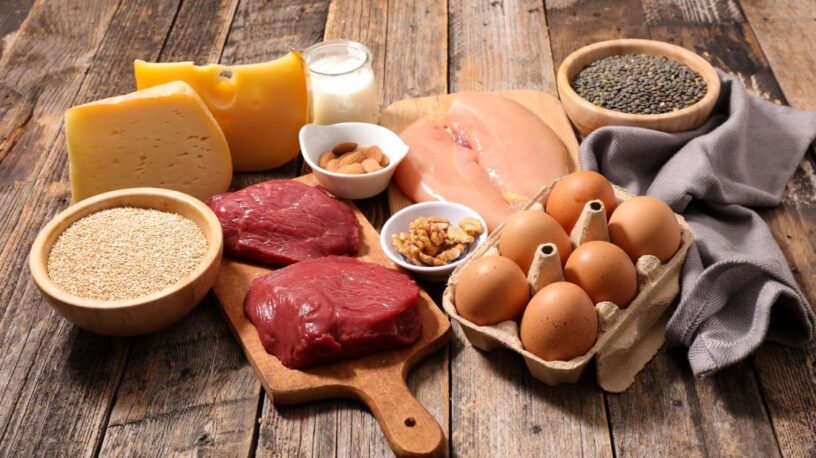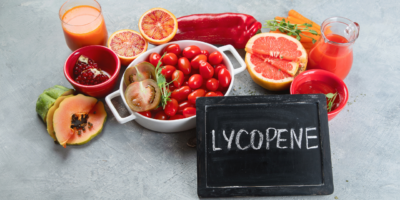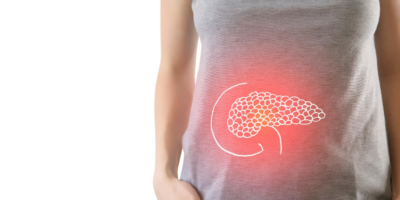Phenylalanine is an amino acid found in many foods – both from plant and animal sources. In addition to producing proteins, they are also used to make other important body molecules such as neurotransmitters. Phenylalanine has been studied and used with many benefits including skin disorders, depression, etc. However, it can also be dangerous for people with genetic phenylketonuria (PKU).


1. Phenylalanine health benefits
1.1 Phenylalanine health benefits: Improve some body functions
✅ Our body needs phenylalanine and other amino acids to make proteins. Many important proteins are found in the brain, blood, muscles, internal organs … Moreover, phenylalanine is important for the production of other molecules, including:
- Tyrosine: This amino acid is manufactured directly from phenylalanine. Tyrosine can be used to create new proteins or convert into other important molecules. You can refer to the Article about the effects of L-Tyrosine.
- Epinephrine and norepinephrine: they have an effect on affecting various parts of the body and stimulate the central nervous system.
- Dopamine: many people call dopamine a “happy hormone” because they have so many good effects on the mind and body of people.
1.2 Phenylalanine health benefits: Supporting the treatment of a number of diseases


✅ Phenylalanine is used to produce dopamine molecules. Dopamine disorders in the brain are associated with several types of depression. A small study of 12 people showed that the mix of forms D and L of this amino acid was effective in treating depression with the results of 2/3 of patients showed marked improvement in mood. However, more research is needed on this health benefit. In addition to depression, phenylalanine is thought to have potential effects on the following conditions:
- The pain: Form D of phenylalanine has the potential to contribute to pain relief in some cases, although the study results are mixed.
- Quitting alcohol: A small amount of research indicates that phenylalanine, along with other amino acids, can help ease the unpleasant symptoms of alcohol withdrawal.
- Parkinson’s disease: Limited evidence suggests that this amino acid is beneficial in treating Parkinson’s disease. More research is needed on this.
2. Foods rich in phenylalanine
- Many foods contain phenylalanine, including products derived from both plants and animals. Eating a variety of protein-rich foods helps provide adequate amounts of phenylalanine along with other essential amino acids.
- Soy products are one of the best plant sources of this amino acid, as well as some nuts like pumpkin and pumpkin seeds. Supplementing with soy protein can provide about 2.5 grams of phenylalanine per 200 calorie serving.
- For animal products, eggs, seafood, and some meats are good sources, providing up to 2 grams – 3 grams per 200 calorie serving. Eating a variety of protein-rich foods helps provide adequate amounts of phenylalanine along with other essential amino acids.
3. Notes when using phenylalanine
- Phenylalanine may cause nausea, headache. If you experience any of these side effects, consult your doctor.
- Pregnant women should take phenylalanine at normal levels because if there is too much phenylalanine in the mother’s body, it can increase the possibility of birth defects in the fetus. For subjects with normal phenylalanine levels, supplement only the amount of phenylalanine in food. Do not take extra supplements. In addition, experts recommend eating foods containing phenylalanine for at least 20 weeks before pregnancy. This will reduce the risk of birth defects in the unborn baby.
- Subjects with urinary phenylketonuria (PKU) metabolic disorders had blood levels of phenylalanine about 400 times higher than normal compared to those without PKU. People with this disorder may suffer from mental retardation, high blood pressure, stroke, and many other serious health problems if they consume more phenylalanine. These people should not use it.
Recommended for you
🎁 NOW Supplements, L-Phenylalanine 500 mg, Nervous System Support


✅ Since 1968 NOW has been a leader in the natural products industry. Even when healthy foods and natural supplements weren’t mainstream, we’ve never wavered from our mission – to provide value in products and services that Empower people to lead healthier lives.
✅ L-Phenylalanine is an essential amino acid that is necessary for the synthesis of proteins. Because phenylalanine can be readily converted into the amino acid tyrosine, which forms part of the structure of the neurotransmitters dopamine and norepinephrine, it is important for the maintenance of a healthy nervous system. Directions: As a dietary supplement, take 1 capsule, 1 to 3 times daily as needed, preferably between meals. Safety Information: For adults only. Consult physician if pregnant/nursing, taking medication, or have a medical condition (e.g. high blood pressure or phenylketonuria [PKU]). Keep out of reach of children.






Leave a Reply